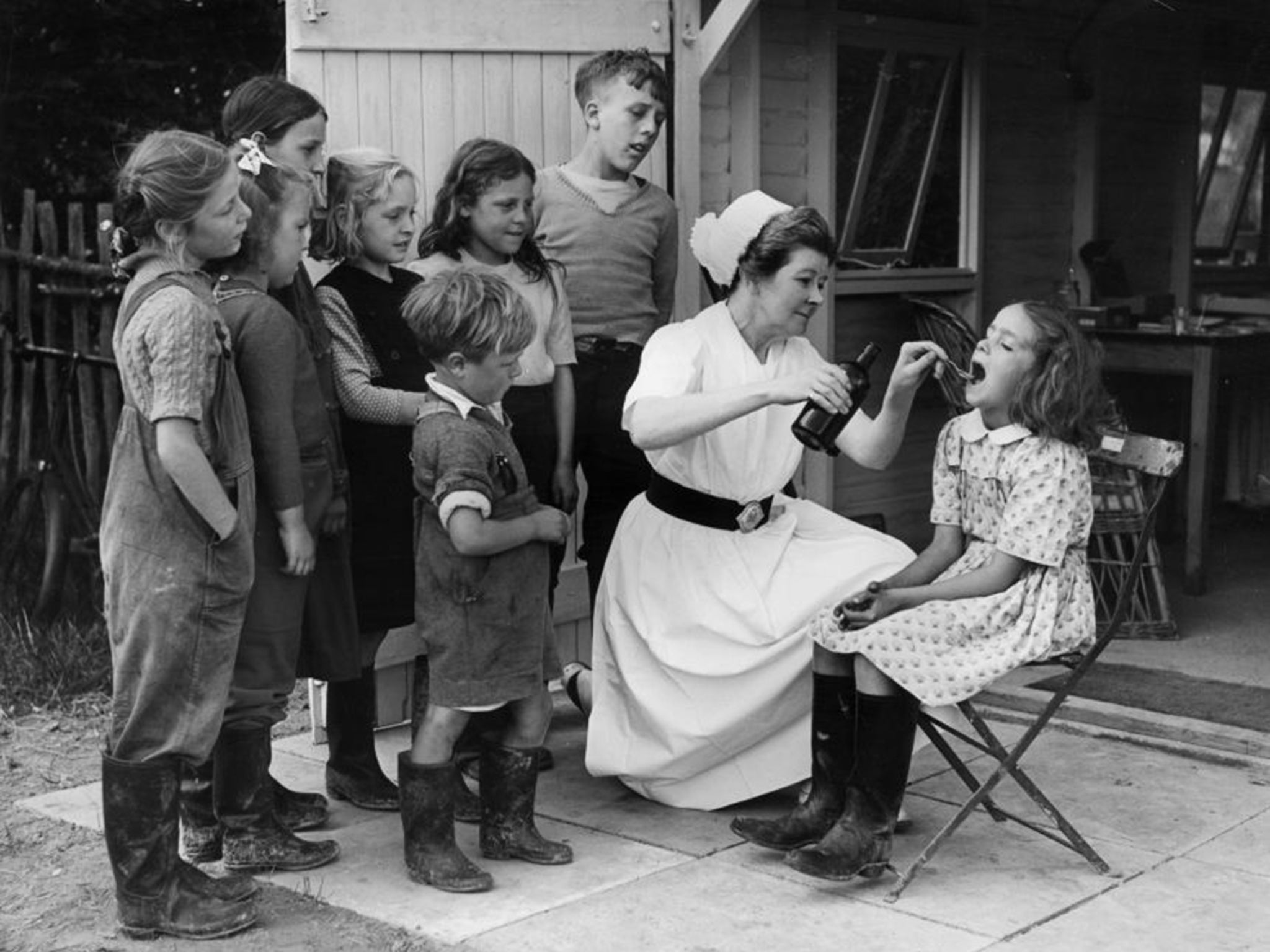Many institutions seem programmed to put themselves first
There are still far too many Tite Barnacles clinging to the hull of SS Great Britain

A fortnight after a hotly contested general election in which the future of the National Health Service lurked behind every acceptance speech, representatives of the medical profession seem to be everywhere.
Another of them turned up last week in the combative shape of Dr Chaand Nagpaul, chair of the British Medical Association’s GP committee, who suggested to an audience of London doctors that the Government’s plans to make surgeries open seven days a week are “a surreal obsession”. Citing increased patient demand and lack of funding as a barrier to extended opening hours, Dr Nagpaul called on the Prime Minister to “jettison the political pipe dreams of tomorrow and get real about how we resource, resuscitate and rebuild general practice today”.
It should instantly be said in Dr Nagpaul’s defence that he has a point, the Government’s plans for the NHS being as strong on rhetoric as they are light on hard cash. To talk to any doctor these days, fresh from a hospital ward or hunkered down in his surgery wondering exactly why he should be “incentivised” to diagnose dementia, is to invite a litany of complaint about stretched resources and the unsustainability of working conditions at the medical coal-face.
On the other hand, the tone of Dr Nagpaul’s rebuke was entirely characteristic of the way in which many a modern institutional titan goes about addressing government ministers or indeed the public, which is to say defensive and ever so slightly patronising.
There may very probably not be enough money to fund seven-day surgeries, especially if, as the BMA insists, 10,000 GPs are booked for retirement in the next half-decade. At the same time the public seems to be in favour of them, and a pledge to introduce them was part of an incoming administration’s election manifesto. A more emollient BMA spokesman might have remarked that although extended opening hours were a highly desirable end, several impediments currently lay across their path and a whole lot more in the way of administrative resources needed to be on the table for the scheme to work. For his part, Dr Nagpaul would doubtless reply that the last quality the medical profession needs to display in its dealings with the Government is emollience.

Leaving aside the rights and wrongs of the BMA case, what might be called the shadow of institutional resistance to change has hung over British life since the middle of the 19th century – exactly the moment, that is, at which institutions, whether social, administrative or professional, began to form a significant part of the national fabric. Of all Dickens’ characters, one of my favourites is the ghastly Tite Barnacle, principal ornament of Little Dorrit’s Circumlocution Office, a bastion of inertia driven almost to fury by the thought that the department in which he takes so negligent an interest might in some minor way be answerable to the public it is supposed to serve.
But modern institutional life, as anyone exposed to the full heat of its self-protecting thermostats knows from bitter experience, is as full of Tite Barnacles as any Dickensian pastiche. As an Oxford undergraduate in the early 1980s, I often used to wonder for exactly whose benefit the place, with its extraordinary collection of scholarly resources and amenities, was being run. The answer, I decided, whenever some particularly tedious fiat descended from on high, was the senior members and a possibly a few of the graduates. The undergrads were regarded in about the same way as the average householder regards the squirrels in the back-garden – tolerated as long as they do no serious damage but sharply repulsed if ever they seem to be getting out of hand.
All this prompted some thoughts about which laws might govern the workings of an institution other than the standard proscriptions of the criminal code. At the top of the list would be an insistence that the institution’s first loyalty is to itself, followed by a belief that the institution which wants to survive must be primarily interested in self-perpetuation. One can see this in the workings of Fifa, whose chief aim, so far as one can judge, is not so much to promote the cause of football around the globe or to reflect the aspirations of football fans as to sustain the career of its president, Sepp Blatter. And one can see it in the crop of trades union barons manoeuvring around the sick-bed of the Labour Party, most of whose onlookers are relishing the prospect of voting against whichever candidate Len McCluskey of Unite decides is the “correct” one.
Naturally, there are degrees of obstruction. A professional body such as a teaching union or a group of chartered accountants can do a fair amount of damage if it tries. But the medical profession (to go back to Dr Nagpaul) is trifled with at your peril, if only because of the – literally – existential nature of the service it provides. Amid the constant pre-election spectacle of politicians congratulating themselves on the dawn of the NHS in the late 1940s it tends to be forgotten that the BMA fought a no-holds-barred two-year campaign against Aneurin Bevan’s plans for reform, that three GP plebiscites had to be held before a sufficient number of doctors could be brought on board and that to placate the consultants, without whose support the scheme would have been scuppered from the outset, their mouths had, in Bevan’s words, to be “stuffed with gold”.
Yet the BMA chieftains of the 1940s seem the merest amateurs when compared to the oligarchical tendencies of certain parts of the civil service. Read the “Corridors of Power” novels of C P Snow and William Cooper, both of whom worked for decades inside the Whitehall establishment and took as their subject upper-level mandarin life in the post-war era, and what do you find? A collection of administrators determined to breathe life into the dry bones of government policy, for whom the wishes of the electorate beyond London SW1 are of primary importance? No, a band of back-stairs intriguers and wire-pullers interested in power for power’s sake for whom the world beyond the Home Office window might just as well not exist.
And for a real-life account of the obfuscations and manipulations of the average government department, one need only turn as far as the 1960s diaries of the Labour Cabinet minister Richard Crossman. The incoming housing minister’s permanent secretary was the formidable Dame Evelyn Sharp, of whom he noted, “She sees the ordinary human being as incapable of making a sensible decision.” As for Crossman’s attempts at policy-making, he noted that while the whole department was there to support him, all the administrative framework was built around a “great deal of secret discussion” convened to ensure that the minister could be “advised or, shall we say, directed and pushed and cajoled into the line required by the ministry”.
Doubtless, everything has changed in recent years. Doubtless, the Whitehall round-tables these days are models of openness, probity and instructions faithfully followed. Doubtless, Oxbridge colleges are administered for the general benefit. Doubtless, Len McCluskey has the best interests of the Labour Party at heart rather than those of his own executive. Doubtless, Dr Nagpaul would give the green light to seven-day surgeries tomorrow if the money were there, which, so far as one can make out, it manifestly isn’t. But much of the evidence suggests that there are still far too many Tite Barnacles clinging to the limpet-strewn hull of SS Great Britain, and that it would be in all our interests if they were prised away.
Join our commenting forum
Join thought-provoking conversations, follow other Independent readers and see their replies
Comments
Bookmark popover
Removed from bookmarks